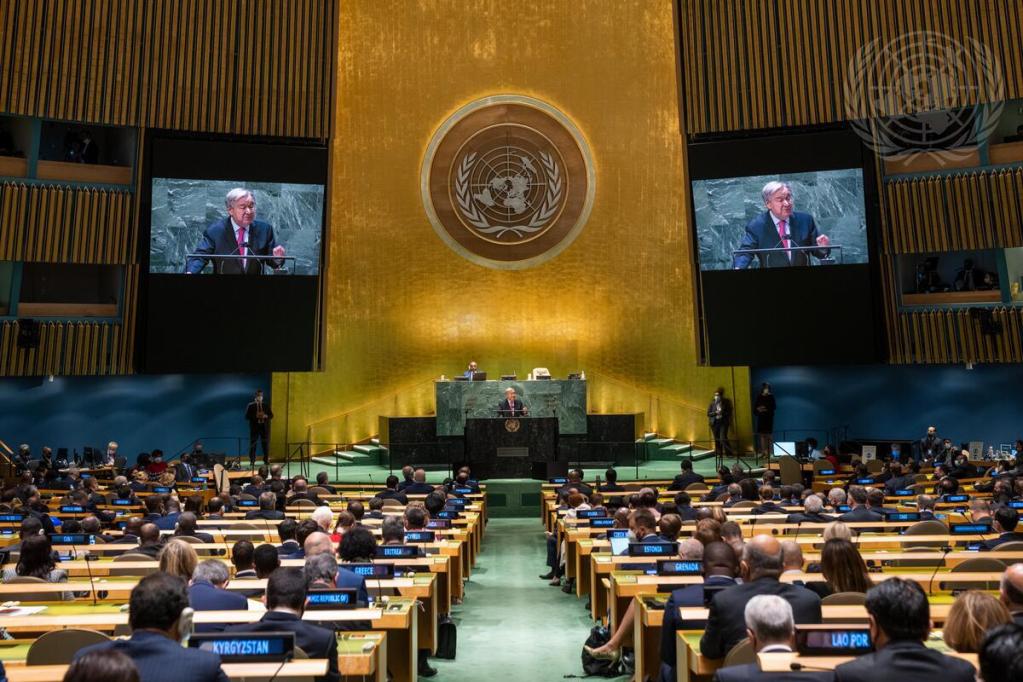The fundamental problem in the structure of the “League of Nations” was the non-recognition and failure to provide for the nations interests; a problem that hindered any of the powerful countries to join that organization and actually, when their interests demanded, entered into a big war.
Such experience led to the discriminatory foundation of the United Nations that was then supposed to replace the failed version of the League of Nations: a special privilege for the great powers to oppose international decisions that were against their interests. Although this issue is operationally summarized and implemented in the “veto right”, the theoretical support of this issue is much more important and comprehensive than its executive mechanism in the Security Council and is the right given to permanent members.
In fact, the United Nations was formed on the idea of “legal supremacy of several political units” and “providing the interests of the big powers”. The acceptance of this fact in the international system that “war” cannot be eliminated and only its dimensions should and could be controlled, has been the solid foundation of the United Nations since 1945 up to now.
This was the usual idea of the realists and theorists related to it, which it was started by mocking the idea of “Thomas Woodrow Wilson”, the president of the United States of America at the time, to form a league of nations to ensure peace and prevent war.
At the end of the First World War, Wilson proposed the idea of establishing a fair world organization with the presence of all countries, which could prevent the occurrence of war with international consensus; an idea that eventually became the “League of Nations”, but could not even have the necessary attraction for the membership of the United States itself – as a proposer.
The secret of success of the United Nations in the face of the failure of the League of Nations is this same issue: permanent membership of the five big powers in the Security Council which provides the basis for the full provision of their interests and guarantees this issue for them that this organization will never take a decision against their interests.
It was under such circumstances that the United States of America, the Soviet Union, the People’s Republic of China, the Republic of France and the Kingdom of Britain agreed to become members in the United Nations and prepare the ground for the formation of a kind of international convergence.
From that day until now, the United Nations has only been successful in preventing or ending wars in which the big powers were not involved, but whenever the interests of one of the five powers that are members of the Security Council were involved in the creation or continuation of the war, the United Nations has only been in the position on an observer.
The US military invasion of Iraq and Russia’s invasion of Ukraine are the two prominent examples of the same philosophy of the formation of the United Nations; the two wars which, contrary to common analysis, not only are not a symbol of the inefficiency of that international organization, but also show the operationalization of its fundamental idea and philosophy.
“George W. Bush”, the president of the United States at the time, clearly ignored the strong opposition of the Security Council and carried out military operations against Saddam’s regime in Iraq with the help of Britain. Even the serious opposition of France – another big power with veto right – to that war could not prevent it from happening.
Such a problem was repeated in the Ukrainian war; where “Vladimir Putin”, the President of Russia, in order to secure the country’s national and strategic interests and despite widespread international opposition, started a special military operation against Ukraine and annexed about 20 percent of that country’s territory to the territories under the rule of Moscow.
The interesting point to note here was the publication of some news about the necessity of removing Russia’s veto right in the United Nations due to the inability of that organization to make a final decision to prevent continuation of the war; news that were clear have not basically the possibility to be implemented and were only a kind of psychological operation tool by Western countries against Russia; because implementing this issue meant bringing the philosophy of the formation of the United Nations under question, which had no result other than changing the nature of the international system, and for this reason, even Washington did not seek to implement it.
In general and by examining all the mentioned cases, we can conclude that the effectiveness and efficiency of the United Nations does not mean to prevent war and achieve lasting peace; because this organization was not established basically to realize peace and prevent the big powers from starting wars, rather it is only supposed to provide them with the possibility of starting and continuing war exclusively by considering a special privilege for them.
Based on this, it can be clearly confirmed that the United Nations does not want and cannot establish peace in the world; rather, it is only intended to put the tools of war – as the main threat to world peace – at the disposal a few superior international powers, thus eliminating other possibilities of war.










0 Comments